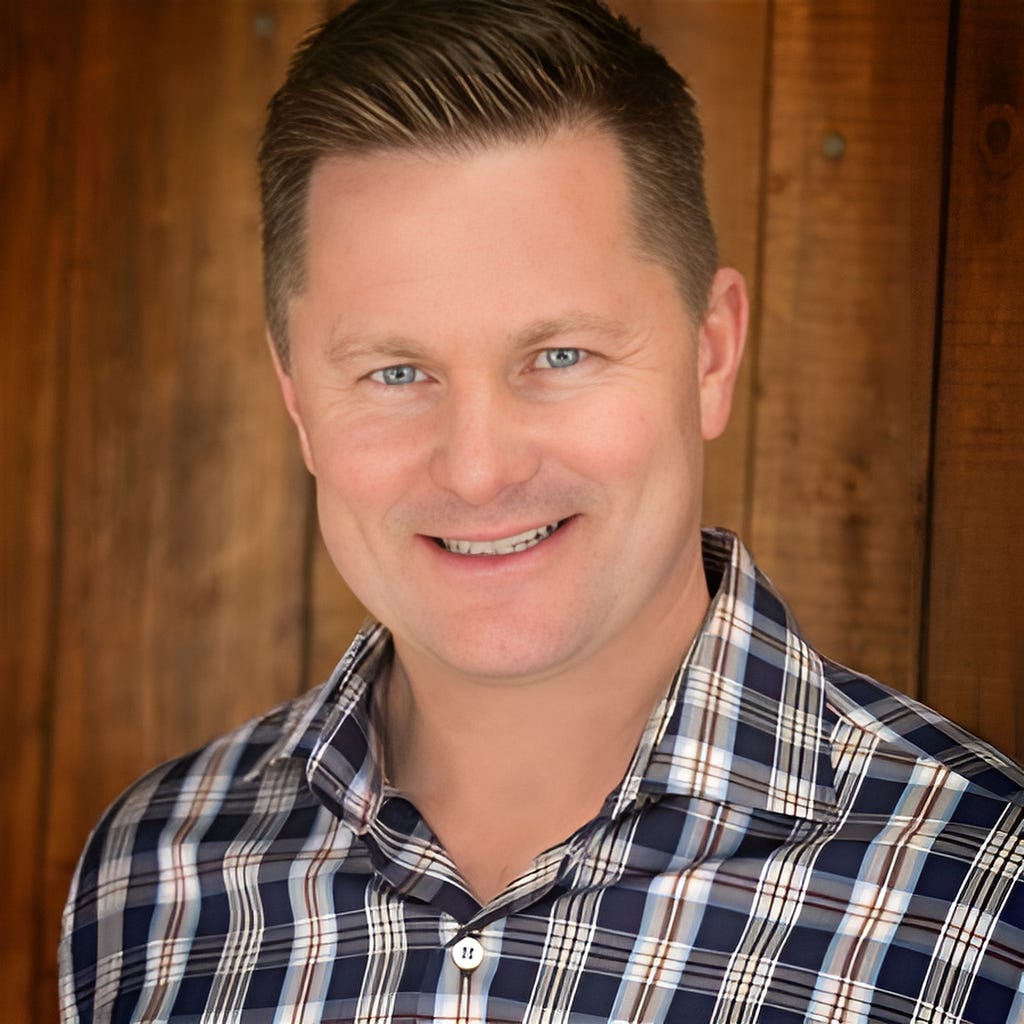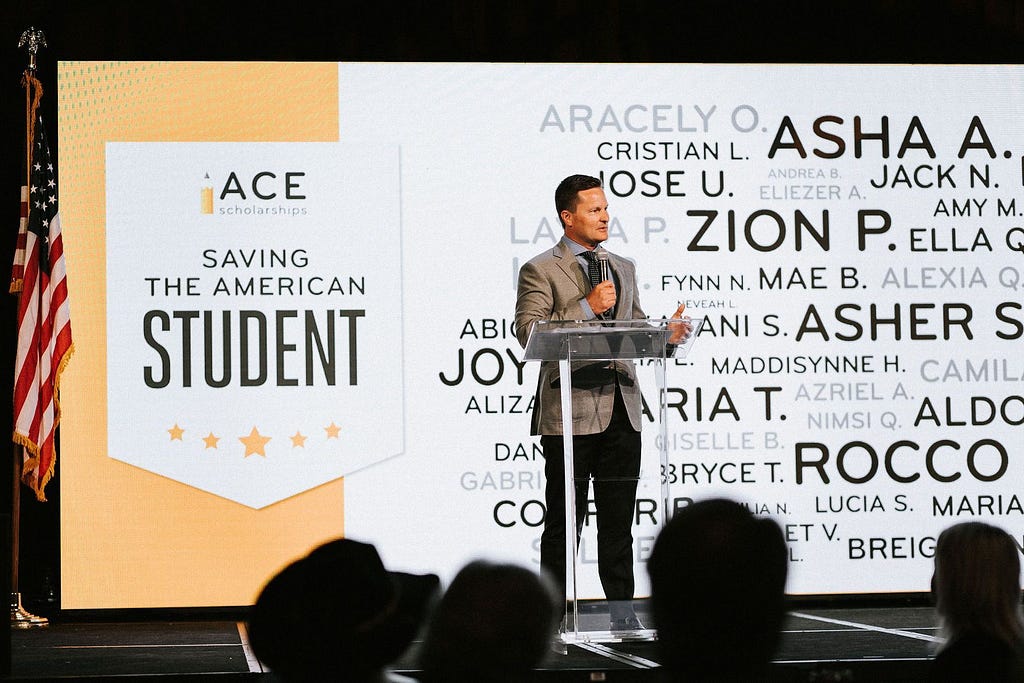Norton Rainey of ACE Scholarships: 5 Things That Should Be Done To Improve The US Educational System

Homeschooling allows parents to educate their students at home, while microschools are typically small, parent-led groups that offer in-person instruction and classes in approachable environments, such as homes, libraries and community centers
As a part of our interview series about the things that should be done to improve the US educational system I had the pleasure to interview Norton Rainey.
Norton Rainey serves as the CEO of ACE Scholarships, leading the charge for education reform in America. ACE Scholarships provides K-12 scholarships to lower-income children, enabling them to attend private K-12 schools. In addition, the organization collaborates with state legislatures to advocate for school choice policies.
Thank you so much for doing this with us! Our readers would love to “get to know you” a bit better. Can you share the “backstory” behind what brought you to this particular career path?
I was working as a major gifts officer in 2002 at the Denver Rescue Mission, which provides emergency services and transitional programs to people suffering with drug and alcohol addiction or homelessness. At the time, ACE Scholarships Founder Alex Cranberg asked me to join ACE to help support their fundraising efforts. ACE is a nonprofit that provides K-12 children of lower-income families with scholarships to private schools, and advocates for expanded school choice. Alex said by working at ACE, I would make the Rescue Mission more successful by helping ensure children never need the emergency and transitional services because it prepares them for a future of success. For 23 years, I’ve been hooked on the ACE mission.
Can you share the most interesting story that happened to you since you started your career? Can you tell us what lesson you learned from that?
I’ve learned many lessons from inspiring ACE scholars over the years. One recent student story that comes to mind is Josiah’s journey. Josiah showed us firsthand that school choice helps develop students more than just academically — it can be an emotional lifeline, too.
Josiah lost his father to sickle cell anemia when he was 10 years old. Josiah’s mother promised his father that she would put Josiah and his siblings in strong schools, but the family was struggling financially and missing Josiah’s father. It was a difficult time.
ACE provided Josiah with a scholarship to Little Rock Christian Academy that ended up lifting him up in every aspect of his life. He transformed from a shy student to a high-achieving student body president with a 4.2 GPA. He had mentors who helped him walk through the difficult time, and the support of the school community led to huge successes. Now he’s a freshman at Oral Roberts University, studying ministry leadership and nonprofit work.
Stories like Josiah’s remind me why our work at ACE is so important. Allowing a student access to expanded educational opportunities can be life changing — more than just academically.
Are you working on any exciting new projects now? How do you think that will help people?
At ACE, we’re focused on expanding school choice, which empowers parents and students to choose education options that work best for them. Usually, students attend the public schools assigned to their ZIP code. School choice provides options beyond that, and it comes in different forms. For instance, states like Florida and Arizona have open enrollment public schools where students can choose to attend any public school in the state. ACE Scholarships provides private-school scholarships to students in lower-income families in 12 states, providing an off-ramp from failing public schools.
Currently, several state legislatures are considering education savings account (ESA) bills to give students money to spend on approved educational expenses, such as private school tuition, curriculum and materials, homeschooling expenses, and more, which will allow parents to find and finance the best education options for their children. Utah, for instance, recently passed the Education Fits All Scholarship Program, which will be managed by ACE and provide around 5,000 students ESAs of $8,000 each, starting in the 2024–25 school year.
Can you briefly share with our readers why you are an authority in the education field?
Personally, I’ve spent 23 years leading ACE Scholarships, which has provided over 80,000 scholarships to students in 12 states. While many organizations advocate for school choice, ACE is proud to say we’ve been doing the hard work of making school choice a reality for families.
Ok, thank you for that. Let’s now jump to the main focus of our interview. From your point of view, how would you rate the results of the US education system?
Right now, the U.S. education system is failing parents and students. Last year, math and reading scores for 13 year olds hit their lowest levels in decades, according to the National Assessment of Educational Progress (NAEP), the federal education exam that measures math and reading scores for fourth- and eighth-grade students. We must get the education system back on track; the stakes are high. Educating our children well is one of the best ways to overcome many of the most difficult struggles facing our country: poverty, crime, and lagging social mobility rates.
Can you identify 5 areas of the US education system that are going really great?
Many public school systems are failing, but certain sectors of education are thriving.
- Parents are taking notice of the education crisis and are demanding more education options for their children, especially since COVID-19. Parental involvement in education is key.
- The expansion of school choice has allowed families to pursue education options outside their assigned public schools. 2023 was a landmark year for school choice as seven states enacted school choice programs.
- School choice is working. Nationwide, ACE scholarship recipients perform higher than public school peers. Across the country, ACE scholars are 54% more proficient in math and 34% more proficient in reading than children attending public schools.
- With a track record of such success, perhaps it should be no surprise that school choice is seeing more demand than ever. The number of ACE scholarship applications has nearly tripled during the last three years, growing from 12,311 applications in 2021–2022 to 32,113 applications in 2023–2024.
- 2024 promises to be another landmark year for school choice. Legislatures in Alabama, Georgia, and Louisiana are gearing up to pass school choice bills to help thousands of students find the best educational options for their individual needs.
Can you identify the 5 key areas of the US education system that should be prioritized for improvement? Can you explain why those are so critical?
- It should be an immediate priority to rectify the learning loss that happened during COVID-19. Allowing students to choose the best schools for them can help improve math and reading scores. As we’ve discussed, ACE scholars are 54% more proficient in math and 34% more proficient in reading than children attending public schools, which shows that school choice shows amazing promise in improving educational outcomes.
- School choice programs should be expanded to help bring more education options to students. State legislatures have made significant progress in passing ESAs and tax credit programs, which allow taxpayers to donate money to approved Scholarship Granting Organizations such as ACE to further educational choice options for K-12 students in their state while receiving a tax break. It would be great to see the same efforts on the national level.
- On both a state and national levels, education dollars should go to individual students, rather than systems. That means moving towards a system where families receive education dollars, and choose whether to place their student in their public school, a charter school, private school, homeschool, microschool, or another option.
- Some worry that this competition could jeopardize public schools. But competition for students increases accountability and makes schools better. Schools that are failing students will have to improve, or parents will choose other options. The top priority should be ensuring that our children emerge from the education system with the tools they need to thrive and succeed in their lives.
- We also need more private scholarship funding. Take the historic demand for ACE Scholarships in Texas as an example. ACE received a record number of scholarship applications from Texas families in 2023, demonstrating increased demand for educational options. As record demand outpaced private scholarship funding, 2,296 students who were under 350% of the family poverty income guidelines and completed the scholarship application were not able to receive funding. With more private donations and expanded school choice in the states, more parents will be able to give their children the best educational opportunities possible.
How is the US doing with regard to engaging young people in STEM? Can you suggest three ways we can increase this engagement?
Giving students access to ESAs, which fund educational expenses, would allow students more options, including:
- Funding tuition to a school that has a more competitive STEM program.
- Funding educational materials, such as educational software, telescopes, or microscopes to further STEM learning.
- Funding field trips to museums or workshops to support hands-on STEM learning.
Can you articulate to our readers why it’s so important to engage girls and women in STEM subjects?
School choice is a great way for girls to chase opportunity in STEM fields where they are traditionally underrepresented or when a student’s ZIP code doesn’t offer competitive STEM opportunities. In these cases, every student should have an opportunity to attend the best school for their interests — whether that’s another public school, a charter or private school, or homeschooling.
How is the US doing with regard to engaging girls and women in STEM subjects? Can you suggest three ways we can increase this engagement?
Granting students access to ESAs, which fund educational expenses, would be a concrete way to open more women and girls up to STEM opportunities, by funding options such as:
- Funding tuition to a school that has a more competitive STEM program.
- Funding educational materials, such as educational software, telescopes, or microscopes to further STEM learning.
- Funding field trips to museums or workshops to support hands-on STEM learning.

If you had the power to influence or change the entire US educational infrastructure, what five things would you implement to improve and reform our education system? Can you please share a story or example for each?
The U.S. education system could be improved by increasing choice and competition, rather than simply reforming the existing one-size-fits all education system. Since every child is different, a one-size-fits-all education system can’t possibly work for every student, no matter how well-meaning the system is.
Below are a few options that work students can choose from with expanded school choice.
- Sometimes, a student’s local public school is the best option for them. With school choice, they’re still free to choose it.
- Open enrollment public schools allow students to choose schools within a public school system that are better suited to their individual needs.
- As we saw in the story of Josiah, sometimes the best school for a student is a private school — whether that be because of class sizes, safety, special offerings, or that school’s individual mission.
- Charter schools are tuition-free schools of choice that are publicly funded but independently run. They sometimes have unique offerings that a student’s local public school does not.
- Homeschooling allows parents to educate their students at home, while microschools are typically small, parent-led groups that offer in-person instruction and classes in approachable environments, such as homes, libraries and community centers.
These options aren’t all-encompassing, but they give you a good idea of the types of education experiences parents can choose for their children.
Can you please give us your favorite “Life Lesson Quote”? Can you share how that was relevant to you in your life?
“Defeat is not the worst of failures. Not to have tried is the true failure.” -George Edward Woodberry
I’m a huge believer that failure is an opportunity to succeed the next time, and we must never give up. It’s also important to not lose our joy or let the negative influences around us impact us. My life’s work is ACE because I believe families are counting on us to help their children succeed. That means despite the difficulties advocating for more educational opportunities for kids, it’s important to move forward.
We are blessed that some of the biggest names in Business, VC funding, Sports, and Entertainment read this column. Is there a person in the world, or in the US, with whom you would love to have a private breakfast or lunch, and why? He or she might just see this if we tag them 🙂
Elon Musk. He’s a huge thinker and he sees no barriers. I love his vision for a better future. He thinks outside the box and remains undaunted by critics.
How can our readers further follow your work online?
Website: https://www.acescholarships.org
LinkedIn: https://www.linkedin.com/company/ace-alliance-for-choice-in-education-/
X: @ACEscholarships
YouTube: www.youtube.com/@ACEScholarships
Facebook: https://www.facebook.com/ACEscholarships/
Thank you so much for these insights! This was so inspiring!
Norton Rainey of ACE Scholarships: 5 Things That Should Be Done To Improve The US Educational… was originally published in Authority Magazine on Medium, where people are continuing the conversation by highlighting and responding to this story.
